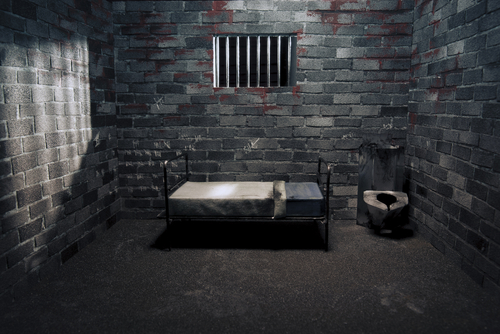5th Circuit rules for prisoner allowed to sleep no more than 3.5 hours per night

A sleep-deprived prisoner can show that his treatment constituted cruel and unusual punishment without proving that his health issues stemmed from the restricted bedtime hours, a federal appeals court has ruled. (Photo from Shutterstock)
A sleep-deprived prisoner can show that his treatment constituted cruel and unusual punishment without proving that his health issues stemmed from the restricted bedtime hours, a federal appeals court has ruled.
The 5th U.S. Circuit Court of Appeals at New Orleans ruled for Texas inmate Michael Garrett in a March 22 opinion. He is incarcerated in the Estelle Unit in Huntsville, Texas, where inmates are afforded only three and a half hours of sleep per night.
Bedtime is 10:30 p.m., and breakfast begins at about 2 a.m. But sleep is not continuous. The prison conducts an inmate count at 1 a.m.
The author of the March 22 opinion is Judge Edith Brown Clement, an appointee of former President George W. Bush. Her opinion was joined by two appointees of former President Donald Trump, Judge Kurt D. Engelhardt and Judge Andrew S. Oldham.
Garrett suffers from migraines, seizures, vertigo, a skin condition, edema, hypertension and kidney disease.
A federal judge had ruled against Garrett for two reasons. First, the judge said, Garrett didn’t prove a substantial risk of serious harm because he didn’t show a cause-and-effect relationship between the sleep deprivation and his health complaints. Second, the judge said, Garrett hadn’t established deliberate indifference by prison officials because the schedule was based on a legitimate penological interest.
The 5th Circuit said the judge was wrong on both issues.
A prisoner only had to show a substantial risk of serious harm, not actual harm, the appeals court said. And, under U.S. Supreme Court precedent, a prison’s penological purpose has no bearing on conditions-of-confinement claims, the appeals court said.
The case returns to the district court for application of the correct legal standards, according to a March 25 press release by Haynes Boone, which represented Garrett on a pro bono basis.
“This ruling marks an important victory and key step in Mr. Garrett’s decadelong quest for an ordinary night’s sleep,” said Hanes Boone associate Chris Knight in the press release.
He argued the case before the 5th Circuit in December.
The case is also important, Knight said, because it abrogates 5th Circuit decisions that had applied the wrong standard.
Write a letter to the editor, share a story tip or update, or report an error.



